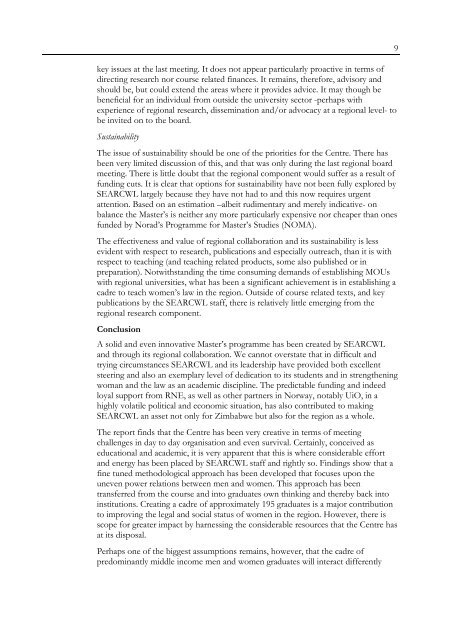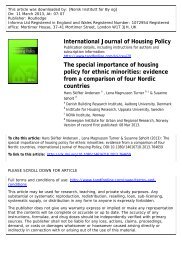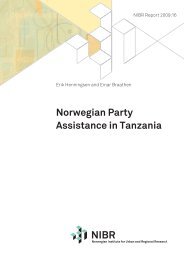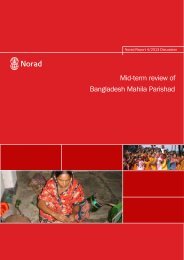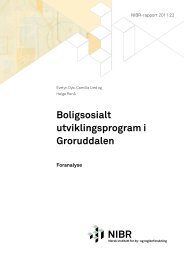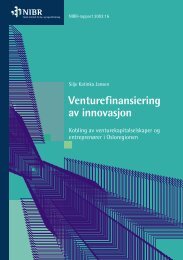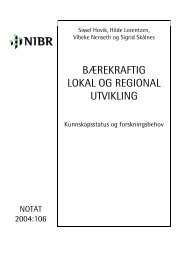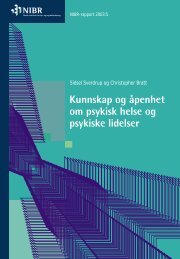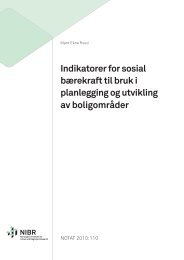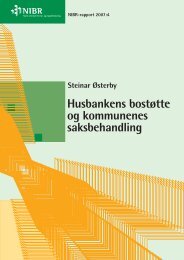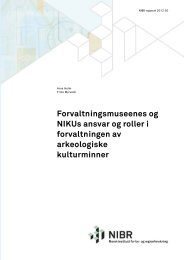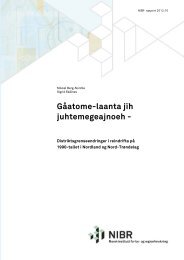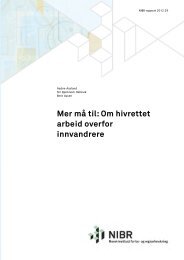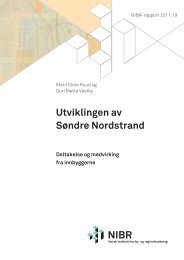Evaluation of the Southern and Eastern Africa Regional Centre for ...
Evaluation of the Southern and Eastern Africa Regional Centre for ...
Evaluation of the Southern and Eastern Africa Regional Centre for ...
- No tags were found...
You also want an ePaper? Increase the reach of your titles
YUMPU automatically turns print PDFs into web optimized ePapers that Google loves.
key issues at <strong>the</strong> last meeting. It does not appear particularly proactive in terms <strong>of</strong>directing research nor course related finances. It remains, <strong>the</strong>re<strong>for</strong>e, advisory <strong>and</strong>should be, but could extend <strong>the</strong> areas where it provides advice. It may though bebeneficial <strong>for</strong> an individual from outside <strong>the</strong> university sector -perhaps wi<strong>the</strong>xperience <strong>of</strong> regional research, dissemination <strong>and</strong>/or advocacy at a regional level- tobe invited on to <strong>the</strong> board.SustainabilityThe issue <strong>of</strong> sustainability should be one <strong>of</strong> <strong>the</strong> priorities <strong>for</strong> <strong>the</strong> <strong>Centre</strong>. There hasbeen very limited discussion <strong>of</strong> this, <strong>and</strong> that was only during <strong>the</strong> last regional boardmeeting. There is little doubt that <strong>the</strong> regional component would suffer as a result <strong>of</strong>funding cuts. It is clear that options <strong>for</strong> sustainability have not been fully explored bySEARCWL largely because <strong>the</strong>y have not had to <strong>and</strong> this now requires urgentattention. Based on an estimation –albeit rudimentary <strong>and</strong> merely indicative- onbalance <strong>the</strong> Master’s is nei<strong>the</strong>r any more particularly expensive nor cheaper than onesfunded by Norad’s Programme <strong>for</strong> Master’s Studies (NOMA).The effectiveness <strong>and</strong> value <strong>of</strong> regional collaboration <strong>and</strong> its sustainability is lessevident with respect to research, publications <strong>and</strong> especially outreach, than it is withrespect to teaching (<strong>and</strong> teaching related products, some also published or inpreparation). Notwithst<strong>and</strong>ing <strong>the</strong> time consuming dem<strong>and</strong>s <strong>of</strong> establishing MOUswith regional universities, what has been a significant achievement is in establishing acadre to teach women’s law in <strong>the</strong> region. Outside <strong>of</strong> course related texts, <strong>and</strong> keypublications by <strong>the</strong> SEARCWL staff, <strong>the</strong>re is relatively little emerging from <strong>the</strong>regional research component.ConclusionA solid <strong>and</strong> even innovative Master’s programme has been created by SEARCWL<strong>and</strong> through its regional collaboration. We cannot overstate that in difficult <strong>and</strong>trying circumstances SEARCWL <strong>and</strong> its leadership have provided both excellentsteering <strong>and</strong> also an exemplary level <strong>of</strong> dedication to its students <strong>and</strong> in streng<strong>the</strong>ningwoman <strong>and</strong> <strong>the</strong> law as an academic discipline. The predictable funding <strong>and</strong> indeedloyal support from RNE, as well as o<strong>the</strong>r partners in Norway, notably UiO, in ahighly volatile political <strong>and</strong> economic situation, has also contributed to makingSEARCWL an asset not only <strong>for</strong> Zimbabwe but also <strong>for</strong> <strong>the</strong> region as a whole.The report finds that <strong>the</strong> <strong>Centre</strong> has been very creative in terms <strong>of</strong> meetingchallenges in day to day organisation <strong>and</strong> even survival. Certainly, conceived aseducational <strong>and</strong> academic, it is very apparent that this is where considerable ef<strong>for</strong>t<strong>and</strong> energy has been placed by SEARCWL staff <strong>and</strong> rightly so. Findings show that afine tuned methodological approach has been developed that focuses upon <strong>the</strong>uneven power relations between men <strong>and</strong> women. This approach has beentransferred from <strong>the</strong> course <strong>and</strong> into graduates own thinking <strong>and</strong> <strong>the</strong>reby back intoinstitutions. Creating a cadre <strong>of</strong> approximately 195 graduates is a major contributionto improving <strong>the</strong> legal <strong>and</strong> social status <strong>of</strong> women in <strong>the</strong> region. However, <strong>the</strong>re isscope <strong>for</strong> greater impact by harnessing <strong>the</strong> considerable resources that <strong>the</strong> <strong>Centre</strong> hasat its disposal.Perhaps one <strong>of</strong> <strong>the</strong> biggest assumptions remains, however, that <strong>the</strong> cadre <strong>of</strong>predominantly middle income men <strong>and</strong> women graduates will interact differently9


